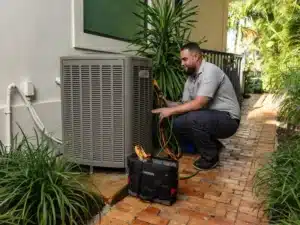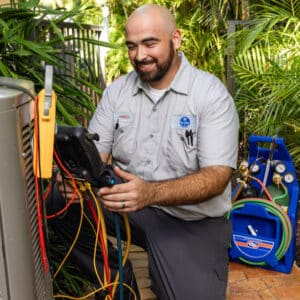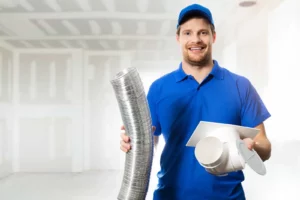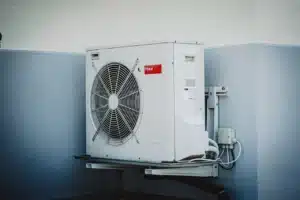How Regular AC Maintenance Can Save You Money
Maintaining your air conditioner regularly is more than just a...
When it comes to keeping your home comfortable in Florida’s hot and humid climate, choosing the right air conditioning system is a crucial decision. With the variety of AC systems available, it can be overwhelming to determine which one is best suited for your needs. Each type of system has its own advantages and disadvantages, and understanding these differences will help you make a more informed choice. Whether you’re building a new home, replacing an old system, or upgrading your current setup, knowing the options available will make the process easier.
Central air conditioning systems are the most common choice for cooling homes in Florida. They are ideal for larger homes or buildings where uniform cooling is required across multiple rooms. These systems use a central unit to cool the air and distribute it through a series of ducts.
Advantages
Disadvantages
Ductless mini-split systems are becoming increasingly popular, particularly in homes that don’t have existing ductwork or for homes where individual room cooling is preferred. These systems have an outdoor compressor unit connected to one or more indoor air handling units.
Advantages
Disadvantages
Window air conditioning units are a more affordable option for homeowners who need to cool specific rooms instead of an entire home. These units are installed in windows and are typically smaller than other AC systems.
Advantages
Disadvantages
Portable air conditioning units are another option for homeowners who need to cool a single room. These units are standalone units that can be moved from room to room, and they vent warm air through a window.
Advantages
Disadvantages
Geothermal heat pump systems use the stable temperature of the earth to regulate the temperature of your home. This system is installed underground, where it taps into the earth’s constant temperature to heat and cool your home.
Advantages
Disadvantages
When comparing the cost of various air conditioning systems, it’s important to factor in both the installation cost and long-term energy savings. While systems like geothermal heat pumps have a higher upfront cost, their energy efficiency can lead to substantial savings in the long run. On the other hand, window and portable units are low-cost options but tend to be less energy-efficient for cooling larger spaces.
In Florida, where the heat and humidity can be extreme, choosing the right AC system is an investment in comfort and energy efficiency. Whether you opt for a central system, a ductless mini-split, or another option, it’s important to weigh your options carefully. Consulting with an experienced HVAC professional will help you make an informed decision that aligns with your home’s unique needs and your budget.
The best AC system for your home will depend on several factors, including the size of your space, your budget, and how you plan to use the system. Here are a few questions to consider when making your decision:
No matter which type of AC system you choose for your Florida home, regular maintenance is key to keeping it running smoothly. Work with an HVAC professional to ensure that your system is installed correctly and maintained regularly to maximize its lifespan and efficiency. With the right system in place, you’ll be able to enjoy a comfortable, cool home throughout the year, even in the Florida heat.

Maintaining your air conditioner regularly is more than just a...

Florida homeowners rely on air conditioning more than most parts...

Indoor air quality is a major concern for many Florida...

Indoor air quality, often abbreviated as IAQ, plays a crucial...

Installing a new HVAC system is a significant investment in...

For many homeowners in Florida, the HVAC system is the...